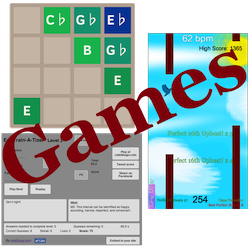I’m reading through the book of Exodus right now and just read about the construction of the tabernacle (specifically chapter 37). There was a chief artist name Bezalel who was a master artist of every craft involved with building this place of worship. As I’m reading about his work (and longing to see it) the main thing that jumps out at me in the text is the fact that he put massive amounts of thought and time into each individual piece of the tabernacle, and it inspires me to know that such a wonderful artist was serving so many people through the power of God.
I can’t help but be reminded of the meticulous detail that I put into my work in composition. But do I write out of my own selfish ambition, or do I write so that other people can be inspired to do great things for the Giver of all good gifts? I sincerely hope for the latter.
Last weekend (the 19th) I had the incredible opportunity of seeing the Grand Rapids Symphony play Tchaikovsky’s Fourth. Not only that, but I got to sit in the balcony directly above the bass section. Watching the technique of the string players, feeling the power of the brass, being enveloped by the warmth of the woodwinds, and being surprised by interjecting percussion instruments were all transcendent experiences which added up to a very memorable performance. Then I went to church the next morning and heard the “low brow” and “amateur” music of the religious assembly and was moved far more by the worship than any classical work could ever move me. I had to ask the question, “Why did I enjoy the music in church so much more than a front row seat at the symphony?” The answer’s clear isn’t it? Because God is real and he is blessing that music (giving it life) because of the deep and meaningful purpose that it serves. Music outside of the context of serving Christ can’t compare to that of the true and passionate worship of a congregation.
In I Corinthians 1: 27 Paul writes, “But God chose the foolish things of the world to shame the wise; God chose the weak things of the world to shame the strong. He chose the lowly things of this world and the despised things–and the things that are not–to nullify the things that are, so that no one may boast before him.” We classical artists tend to take ourselves way too seriously, and therefore way out of context. Yes, we’re very skilled, smart, inspirational, and some of us are very intellectual. But that matters little when it comes to the true purpose of artistic expression; to give life to others by blessing them with our gift. God chooses the foolish things of the world, but very few of us are willing to admit to being the fools we are so that God can use us. If we would all humble ourselves and be willing to become weak (or be honest about our work’s significance) so that God could use us we might actually become, through Christ, a powerful force for good in this world. But since most of us are writing with only our own agenda in mind, the classical world’s work seems to be getting “nullified” more and more by “foolish things” that openly acknowledge music (like everything else) as worthless outside of Christ.
Quality in art is far too subjective to bother analyzing, but it’s really the wrong question anyway. The question we should rather ask is, “What music gives life?” Or rather, “What music blesses me?” And then, “How can I use the life I am given through this art to give life to others?”
Bezalel’s art helped to give life to God’s temple because God gave him the ability to create magnificent art in almost every craft known at that time. It helped inspire God’s people to worship and served a purpose far greater and deeper than the art by itself could ever have done. I sincerely hope that my work is doing this for people, and from the feedback I’ve gotten I suspect that it is. I can’t help but publicly praise God for that!
Pray for me that I can keep the intent of my work on blessing others and on Christ. Also pray that God can influence other composers through me to write with Christ centered intent.

